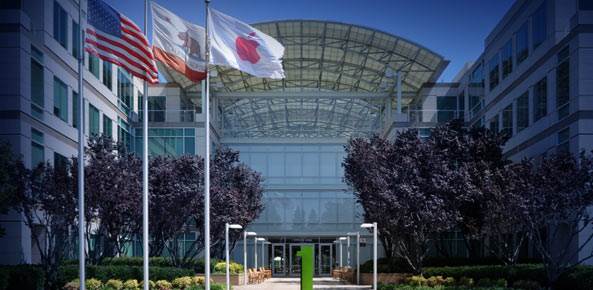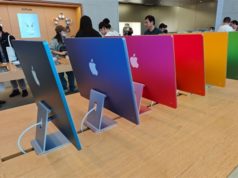There’s no question that Apple has produced some revolutionary products over the past four decades, but as Apple hits its 40th birthday milestone today, plenty of people are asking what’s next for the iconic device company.
Since the company was founded by Steve Jobs, Steve Wozniak and Ronald Wayne on April 1, 1976, Apple has reinvented the personal computing and communication landscape more than a few times with market-altering products like the Macintosh, the iPod, iTunes and the iPhone. Despite its massive impact and revenues, though, it’s also had its share of stumbles and challenges.
The most recent was its legal challenge of a court order requiring Apple to help the Federal Bureau of Investigation unlock an iPhone used by Syed Rizwan Farook, who, with his wife, Tashfeen Malik, killed 14 people during a December 2 attack on his co-workers in San Bernardino, Calif. Apple escaped the order after the FBI suddenly announced earlier this week that it had been able to break into the phone with the help of a third-party firm.
More Revolution or Incrementalism Ahead?
The FBI challenge led to a wellspring of support from the public as well as tech companies — along with plenty of criticism from others — for Apple’s stance on privacy and security. However, other Apple developments have received more lukewarm responses.
The company’s “Loop You in” media event last week lacked the dramatic product launches seen in some previous years. Instead, the company unveiled an updated version of a 4-inch iPhone, a 9.7-inch version of last year’s iPad Pro and some new band styles for the Apple Watch. Other product announcements in recent years have also included more incremental updates — 2015’s iPhone 6s and iPhone 6s Plus, for example. And new devices such as the Apple Watch haven’t achieved “revolutionary” status.
Announced last year, Apple appears to be selling fewer units of its watch than some analysts had predicted, while competing devices like Fitbit’s new Blaze have seen stronger reviews and sales.
So does all this mean that at 40, Apple’s best days are behind it? And will Apple fans — and Apple — have less to get truly excited about in the years ahead? Market watchers don’t think so.
Middle-Age ‘Innovation Test’
“[T]here’s no doubt that Apple is going to face increased challenges over the coming years,” ZDNet’s Adrian Kingsley-Hughes wrote today. But the success of the iPhone — introduced by the late Steve Jobs in 2007 — alone, and many customers’ fanatical devotion to the device, are likely to keep the company’s sales healthy for years to come, he wrote.
Financial expert Sven Carlin, who offered his outlook for Apple’s next 40 years in an article on the investment site Seeking Alpha, agreed. Based on the company’s current customer retention rates and other trends, Carlin predicted that Apple will continue to realize healthy sales and earnings through 2056, even without taking into account any new products.
“According to the Lindy effect where the longer a technology has been around, the longer it’s likely to stay around, it is more and more probable, day by day, AAPL will be around for another 40 years,” said Carlin, the owner and fund manager at Let it Grow Investments and an assistant professor in finance at Hogeschool van Amsterdam.
On Twitter today, Paul Kedrosky, venture capitalist and author of the Infectious Greed blog, noted that — while he liked Apple “a lot” — he has been unimpressed by recent moves. “Interesting that Apple turned 40 today,” he wrote in one tweet. “Feel as if the innovation baton has been passed on, whether, to Tesla, Facebook, or elsewhere.”
Guy Kawasaki, Apple’s one-time chief evangelist, also said the company must do more to produce real innovation as it moves into middle age.
Speaking with CNBC today, Kawasaki said that while he believes the company’s brand remains powerful, Apple has to come out with another new product that’s revolutionary in the way the Macintosh computer was. “What’s going to make us want to abandon what’s already there and go to the next curve?” Kawasaki asked. “That’s the big test for Apple.”







